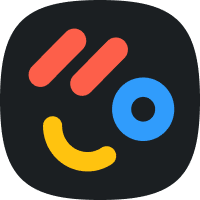The ability to automatically set start and target dates on your templates helps you communicate timeline expectations for your customers.
It also lets you automate setting task due dates and displaying a completion dates for plans, based on those starting points.
The value is to…
✅ help ensure participants on your plans have visibility into timelines ✅ provide you with timestamp data to better understand your onboarding velocity ✅ speed up the process of deploying mutual action plans!
From the Settings drawer on your template editing screen, you will see the option to set an automatic start and target date.
You’ll most likely be sharing plans with customers as you create them so setting your start date to “0 days after plan creation date” is a great place to begin.
If you have a target date in mind, say it takes 60 days on average to complete your onboarding journey, set your target date to “60 days after plan creation date.”
Note - You can adjust the timeframes to meet your business needs and you can always customize these at for individual customers from the plan level as needed

Once you’ve added start and target dates to automatically be set, you have the ability to use relative due dates within tasks to automatically set task due dates!
In the example below, we set a relative due date of 2 days after start date for the “Schedule your kickoff call” task.
When editing a task in your template, you’ll want too…
- select Due date
- select Relative date
- set your relative date to be X number of days/weeks/months from the start date (or before the target date)
- select Save

When we create a new plan, the due date for that task is automatically set for 2 days from that moment (or whatever configuration you use in your setup!) If that happens to fall on a weekend, we will set the due date for the Friday before.
At the customer plan level, your plan participants will also see their plan start and target dates at the top of their welcome card.
This will ensure they have a sense of the expected timeline for the plan.
Fret not, you can always adjust these later if a specific customer needs a different plan start or target date!

The ability to automate this process is ideal for setting timeline expectations as early as possible with your customers. Ensuring those first few tasks also have due dates automatically set further increases the likelihood of them getting completed!
The data within these timestamps is how you’ll learn the velocity of your onboarding, and in time, learn the impacts of this velocity once you start to optimize your onboarding process.
